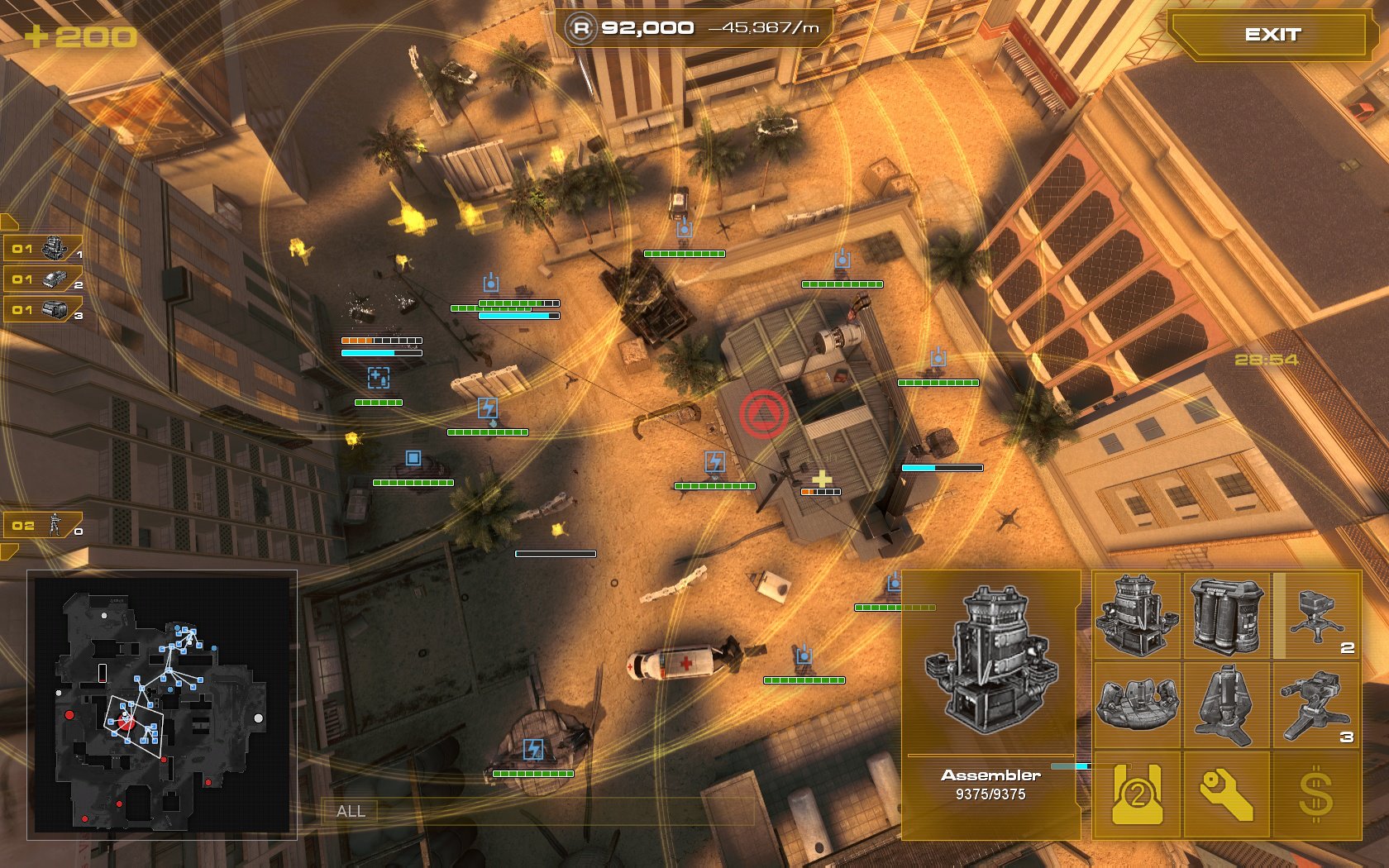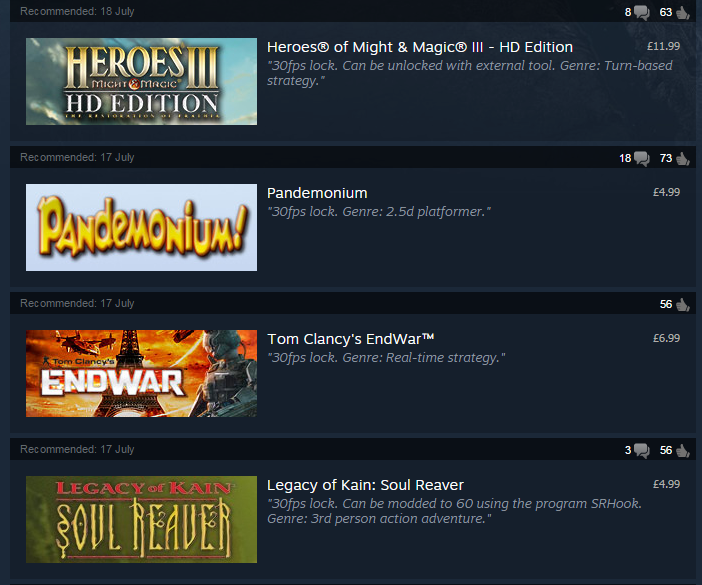How Not To Be An Asshole About A Video Game
So, as it turns out, No Man’s Sky was not the Second Coming. To a reviewer, this is no big surprise. To players, however, it seems to have been, to the point where death threats have been sent to the feller who reported that the game was being delayed for two months, to the developers when they confirmed it, to the developers when the game came out and it didn’t meet some really heavy expectations, to, oddly, anyone who criticises the game.
Thing is, it’s relatively easy not to be a death threat spewing asshole because a game disappointed you. Here’s a few handy tips, from most obvious to least.
This Doesn’t Apply To Everybody Reading This
This, like the thing below, shouldn’t have to be said. But there’s often that worried little voice “But what if he’s talking about meeeee?”
Okay, here’s your checklist. You don’t fill this criteria, it’s not about you. Good on you:
- You bought a game without trying to find out if it’s for you.
- You got angry about this, possibly enough to send death threats to somebody, definitely enough to rant about it somewhere.
- You even possibly thought that would make the game better.
- (Side possibility: You bought the game and are angrily shouting at everyone who thinks it’s not for them.)
Death Threats Are A Crime. A Video Game Is Not Worth Committing A Crime.
This really shouldn’t have to be said. But, somehow, it does. Again. And again. And again. And again. If you’re getting angry… About a video game… Enough to send people death threats… Then some serious anger management is needed. This is true even if other things about this NMS debacle weren’t also true. It also doesn’t magically make the game better. Often, what it ends up doing is needlessly harming or pissing someone off, you end up on a blocklist (And, occasionally, a watchlist), and you then don’t get to give feedback on it anymore because you’ve proven that you can’t criticise effectively or usefully. All you’ve shown is that you get angry about things.
What Was Actually Promised?
This is a very important one, folks, and too many people out there forget this one. No Man’s Sky promised exploration (Yup), Procgen planets and creatures and languages (Yup), resource gathering (Yup), and flying through space between planets (Yup.) It did not promise a romance plot. It didn’t promise a massive variety of guns. It didn’t promise 4X elements.
If you expect things that were never promised, you’re pretty much setting yourself up for heartbreak, and have nobody to blame but yourself. If you believed the rumour mill over official sources, you have nobody to blame but yourself. If you didn’t even look at said official sources before putting down your money, you really have no-one to blame but yourself.
Another thing that often happens is someone says a thing, and it’s misconstrued to be another thing, or expectations are built on only a few words. “Spiritual Successor” is a good one, because that’s actually pretty damn ambiguous. What it actually means is “We were inspired by this thing to make another thing that takes elements from that thing.” It doesn’t mean “We are remaking the thing” or “We are making a thing that’s exactly like the thing”, because, very often, the thing it’s a “Spiritual Successor” to had design elements that maybe wouldn’t work so well in the modern day, or are patented, or don’t fit with the other things that the developer is doing in their game.
I Paid Money For This, You Know?
Yes, you did. Of your own free will. I’ve yet to hear of a case where someone was actually forced to buy a game, especially not by the developers. If you didn’t research before buying a thing, then it’s not the thing-maker’s fault you bought the wrong thing. An example using everyday stuff: The words “May contain nuts” are there for a reason. Because there are people out there who can die if they eat nuts. It is not the maker’s fault that their thing contains nuts if it says, right there, “May contain nuts.” It is also not their fault if you wanted nuts, and it did not say it had them.
This ties into, for obvious reasons, doing your research. You bought a game without knowing what it is? There’s no nice way to say it, you’re an idiot. There’s YouTube Let’s Players who leap on the game from release, there’s lots of reviews that get published, there’s all those trailers they put out and articles and things, and the developers aren’t even going to know that you waited for a day or two while seeing if the game was what you wanted to pay money for.
“But I don’t want SPOILERS!” is, at least, a semi-valid concern. I say semi-valid because while there is no foolproof way of avoiding spoilers for a game, there are ways to mitigate that risk. I’ve known Let’s Players spoil the ending of a game… At the beginning. But most of them, funnily enough, don’t, especially if they’ve come in blind. Gameplay trailers and streams from the developers are often kept as spoiler free as possible. There’s two possibilities, right there, for seeing what the first hour or so of a game is like. And if it’s not for you, it’s not for you… Leading us nicely to…
Guess What? People Are Different
This one is low on the list, not because it’s not obvious (Look at my photo, then look at you. Odds are pretty high we don’t look all that much alike, even superficially), but because it’s a sort of side case. People sometimes get it into their heads that if other people don’t like a thing that they like, or, HORROR, like a thing they don’t, they are automatically the Spawn of Satan. Sometimes, the people who like the thing or don’t like the thing haven’t done their research.
That’s on them. You see somebody who hasn’t done their research, point them to one of the many articles by reviewers and critics who’ve been pointing out for the last god-knows that if you buy a thing without research or critical thought, you’ve made a boo-boo (Not necessarily the thought of critics, just thinking critically yourself.) It doesn’t even have to be mine.
However, the core thing here is that people like different things. Good example: I severely dislike HOPAs. I disagree with at least one fellow critic that they write women better. I find their lack of thought about things like colour blindness, or placing puzzles in a manner that makes even the vaguest amount of sense to be repellent. And I have played and reviewed enough of them that I feel this opinion is a considered one.
Funnily enough, though, they still sell well. They still get praised in certain circles. They still get played. And this is because they’re not, the majority of the time, targeted toward me, or folks like me. Many of the people I’ve talked to who play HOPAs and enjoy them give not the slightest fuck about the story beats, or the placement of the puzzles, or the colour blindness thing, and the best of them actually work quite well in a language teaching context.
Okay, people don’t like the game you bought. It’s not going to kill the developer, or crash the games industry that they don’t like the thing you bought. Just like it’s not going to make the game you liked magically vanish because somebody else didn’t.
Now that we’ve got this over with, some nice, easy ways to properly give feedback about a game.
Giving Good Feedback
Write from a place of calm. If you’re writing angry, you’re writing when you’re not thinking clearly. And, funnily enough, people have a tendency to listen more if you are polite about things than if you’re ranting and raving.
When talking about a feature, try and make sure you understand the feature first. If you don’t, that, in and of itself, is potentially valuable feedback. But if you do not understand the feature, that’s going to affect how useful your feedback is, usually negatively.
Be clear. “This isn’t like X other game” is not useful feedback. Especially since, surprise surprise, this isn’t X other game. One useful criticism I heard for No Man’s Sky is that the resource management and collection aspects interfere with the exploration aspect of the game, in that it limits where you are likely to go, and how far you are likely to go. That’s a conflict. An example of a piece of criticism that isn’t useful is “It doesn’t have a rocket launcher.” That’s not useful because hey, guess what: This isn’t that sort of game.
If you would like to see a new feature, do not dictate, suggest. And don’t be all too surprised or disappointed if said suggestion is not taken. A good example of this would be multiplayer in NMS. Yes, it seems simple to you. But as anyone who has even dabbled with netcode could tell you, it isn’t. You’re very possibly thinking in terms of how “simple” the data is that needs to be transmitted. What you’re very possibly forgetting is that those supposedly small numbers (Which aren’t as small as you think they are if you don’t want fun things happening like other players appearing inside animals that are on your end and not theirs) add up. And have to be processed. As close to realtime as possible. Things you may think are simple to add, or beneficial, may not actually be in context, or with a greater understanding of how the game is coded. And, most importantly, you are not the developer or the publisher. It’s important to remember that when giving feedback.
Most of all, remember what is fact, and what is opinion. Fact: No Man’s Sky crashes on start up for me, and it gives this error message. Okay, that, along with diagnostic information, may help the developer work out why it’s crashing at start up, and perhaps be able to reduce the amount of crashes on start up (Providing they can reproduce that.) Opinion: This game sucks, go fuck yourself. That’s not even a useful opinion, because there’s no information the developer can work with, nothing that invites discussion, just… Noise. Opinion: This game sucks because it doesn’t have loads of guns. More useful, because it’s at least giving a reason, but where did you get the impression it was a shootmans game, as opposed to an exploration game?
Okay, let’s try a useful opinion: I feel that the limited inventory slots of the early game hampers the pacing of my experience, because I end up wasting a lot of time on inventory management rather than, for example, crafting or exploring or learning alien languages. That’s still not going to guarantee any changes, but it gives a reason for dissatisfaction, it’s not insulting, and it shows the developer where part of their audience is getting their enjoyment. It’s not going to fix any bugs. It’s still an opinion. But it’s a lot more productive than that first opinion.
To give some idea of how many times I’ve tried to say this in one form or another, here’s some further reading on the site:
When Is It Okay To Harass About Framerate? (HINT: NEVER)
On Fandom, Early Access, and Backseat Developers
On Games Journalism: We Are *All* Only Human






